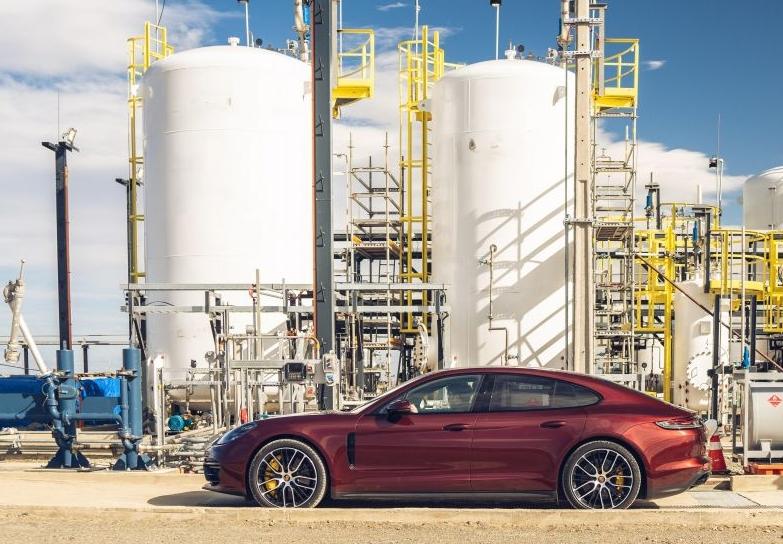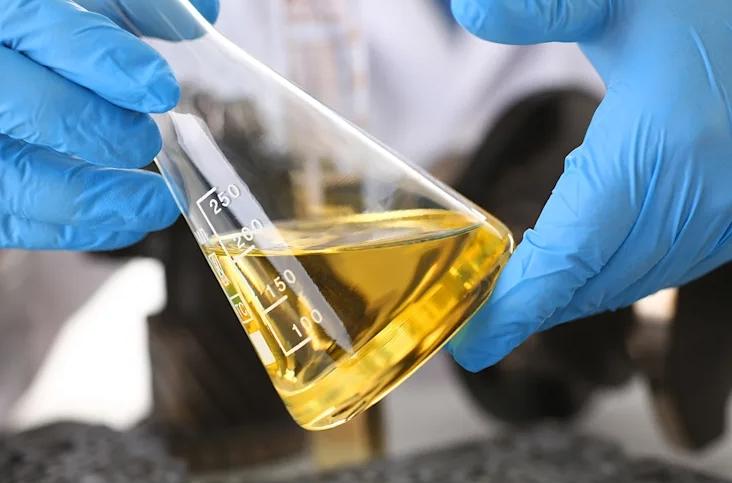Advocates, primarily the FDP in Germany, view synthetic fuels or e-fuels as a chance to allow cars with internal combustion engines to remain on the roads beyond 2035 in the event of an EU ban. These fuels are considered to be eco-friendly. Nevertheless, skeptics are uncertain whether e-fuels are a realistic substitute.
What are e-fuels and how are they produced?
Electrofuels, also known as synthetic fuels, are created by combining hydrogen with carbon dioxide. This process can result in fuels with properties similar to diesel, gasoline, or kerosene. They are in liquid form and contain carbon, just like traditional engine fuels. The production of electrofuels involves splitting water into hydrogen and oxygen, and then using the hydrogen to combine with carbon dioxide that has been separated from the air to create the fuel.
Are such fuels really clean?
Whether e-fuels are environmentally friendly depends on their production process. To be considered climate-neutral, the energy needed to produce them should come from renewable sources such as solar, wind, or hydroelectric power. Additionally, the process must involve capturing carbon dioxide from the atmosphere, which requires a significant amount of energy due to the low concentration of CO2 in the air. However, the combustion of e-fuels still produces exhaust gases that are harmful to the environment, similar to fossil fuels. Although they release smaller amounts of soot and nitrogen oxides, they still release the CO2 that was initially bound in the fuel.
How efficient are these e-fuels anyway?
According to the Federal Environment Agency, the use of e-fuels in internal combustion engines for passenger cars is considered “highly inefficient”. The report suggests that three to six times more electricity is required for the same mileage compared to an electric car. Engineers at the Mining Academy in Freiberg, Saxony, have calculated that approximately 50 kilowatt hours of electricity could be consumed during the production of five liters of e-fuel per 100 kilometers. This amount of electricity is equivalent to about half the monthly consumption of a German single household. The German Automobile Association (ADAC) also acknowledges that e-fuels suffer from high efficiency losses, with only ten to 15 percent of the energy used being effectively utilized in the car. Consequently, e-fuel cars would require at least five times more energy than today’s electric cars.

Does the technology work in practice?
In mid-2022, ADAC conducted tests on e-fuels in some cars and found no differences in performance or driving behavior when compared to fossil fuels. Additionally, the current service station system is considered appropriate for distributing e-fuels, either as a blend or in pure form.
Are e-fuels already being produced?
Large-scale production of e-fuels is currently only possible in pilot plants. For instance, the fuel used in ADAC’s test drives was produced in a test facility located in the Freiberg Mining Academy in Chemnitz. Major car manufacturers such as Audi and Porsche have their own pilot plants in Switzerland and Chile, respectively. However, ADAC warns that building large-scale production plants for e-fuels requires a significant investment of time, space, money, and technological expertise.
What could e-fuels cost at the filling station?
The ADAC suggests that e-fuels could cost less than two euros per liter. This is due to the decreasing production costs of green electricity and the possibility of achieving economies of scale in e-fuel production.
What do proponents have to say about this?
Porsche, the sports car manufacturer, claims that e-fuels could potentially eliminate up to 90% of the CO2 emissions that were previously produced by internal combustion engines. The German petroleum and energy industry argues that efficiency should not only be measured in terms of how much energy a trip consumes, but rather by the amount of energy and CO2 produced, from production to mileage to recycling. In this regard, e-fuel vehicles fare better than others.
The Bergakademie Freiberg states that there are approximately 1.4 billion combustion engine vehicles in use worldwide, and it would require significant amounts of energy to produce enough alternative vehicles to replace them all in a short period of time. Therefore, e-fuels could serve as a transitional solution for combustion engines. However, car manufacturers such as Mercedes and VW believe that electric vehicles will ultimately dominate the market.

What do critics of e-fuels in passenger cars say?
The German environmental organization Bund für Umwelt und Naturschutz (BUND) does not consider e-fuels as a viable option for private cars, instead advocating for their use only in essential air and sea transportation. Greenpeace has labeled the use of e-fuels for private cars as a misuse of clean energy, and the Heinrich Böll Foundation has referred to “green hydrogen” as a scarce resource that should not be used for privately owned vehicles, likening it to the “champagne of the energy transition.”
According to the Federal Environment Agency, synthetic fuels are primarily suitable for use in shipping and aviation due to their low efficiency. The agency suggests that hydrogen should be utilized “only in areas where direct use of renewable electricity is not possible.” Additionally, the use of hydrogen in long-distance road freight transport should be considered “only under certain circumstances.”
Do e-fuels have a future?
The feasibility of large-scale production of e-fuels is still uncertain. In October 2022, Transport&Environment, a think tank, stated that only five million out of an estimated 287 million cars in the EU could be powered by e-fuels in 2035, given current industry production volumes. The TU engineers from Freiberg, on the other hand, doubt that large-scale production can be achieved in Germany anytime soon due to insufficient “green electricity.” Nonetheless, e-fuels have the advantage of being easily storable and transportable, making the location of their production less significant.



